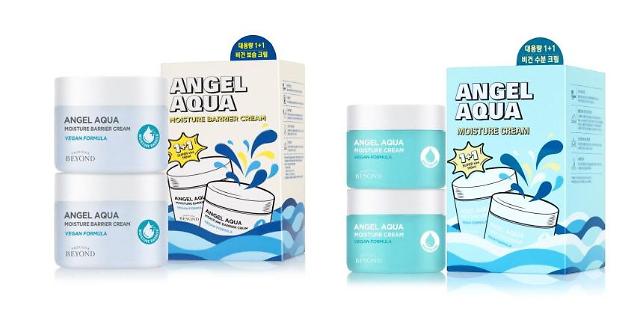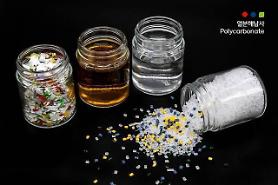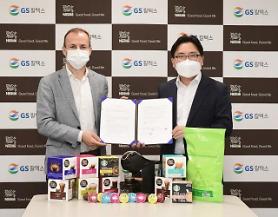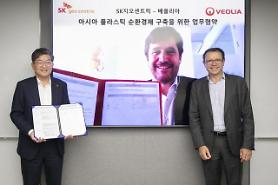
[Courtesy of LG Household & Health Care]
Pyrolysis is a chemical recycling process that can convert plastics into high-quality oil using extreme heat and pressure. Recycled oil is processed into medium crude and light oil. Previously, pyrolysis oil has not been used for the production of petrochemical products due to impurities. A post-treatment process was developed to remove impurities.
LG Household & Health Care claimed to be the first company to sell cosmetics in containers using 100 percent waste plastic pyrolysis oil. The company signed a memorandum of understanding with Hyundai Chemical and Lotte Chemical to promote eco-friendly plastic businesses.
Hyundai Chemical will manufacture eco-friendly plastic by introducing waste plastic pyrolysis oil as a raw material for its oil refining process. Lotte Chemical will develop a new product line that can be applied through product manufacturing and optimization. LG Household & Health Care said its production process has acquired ISCC PLUS certification, a sustainability certification program for bio-based and circular raw materials.
The accumulation of plastic waste has become a serious global problem. Chemical recycling breaks down and returns plastic to its pure, raw material form. South Korean research institutes, private companies and academics have joined hands to popularize pyrolysis recycling as a method to respond to climate change. New technologies overcome the limitations of physical recycling, which cannot recycle plastic waste if it is mixed with contaminated or colored plastic.
In September 2022, Lotte Chemical produced polycarbonate, a high-value-added petrochemical product, by using pyrolysis oil-based naphtha. Polycarbonates are strong, tough materials with many applications. Lotte Chemical received waste plastic pyrolysis naphtha from Hyundai Oilbank, a petroleum and refining company affiliated with South Korea's Hyundai shipbuilding group, and put it into the naphtha cracking center in its plant in the southern industrial port city of Yeosu.
Copyright ⓒ Aju Press All rights reserved.



